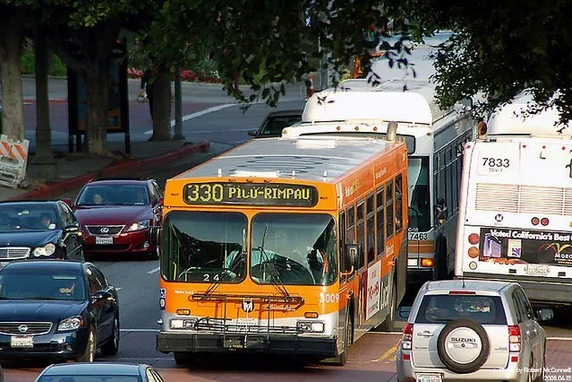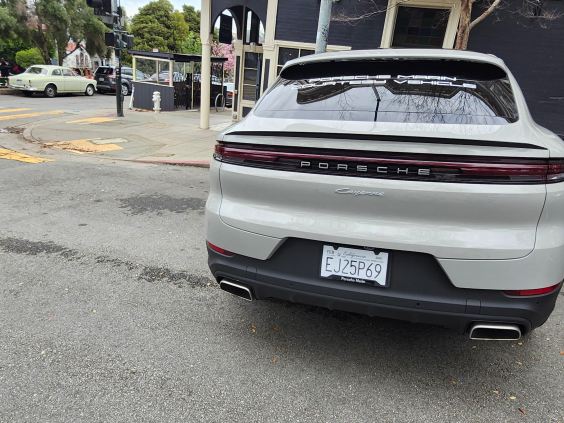Note: Metropolitan Shuttle, a leader in bus shuttle rentals, regularly sponsors coverage on Streetsblog San Francisco and Streetsblog Los Angeles. Unless noted in the story, Metropolitan Shuttle is not consulted for the content or editorial direction of the sponsored content.
On Monday, Mayor Eric Garcetti released a plan to dramatically reduce greenhouse gas emissions in the city. One of the ways that L.A.'s Green New Deal plans to do this is by tripling transit ridership. Despite this goal, critics savaged the plan for failing to make a meaningful investment in bus infrastructure, whether general operations or specialized lanes such as Bus Rapid Transit.
On Tuesday, we found out why. Metro released its proposed $7.2 billion budget for the next fiscal year, starting on July 1. Unless amended, it contains small cuts to bus service (masked by the additional day of the leap year) and some deeper cuts to rail service. Also of note: the budget does not include an operations budget for the Crenshaw Line, which was originally scheduled to open in December of this year—about halfway through the fiscal year.
At first read, the program doesn’t look bad. The budget claims a one percent increase in bus service hours and a larger cut in rail operations. However, twitter user @calwatch drew attention to an important point: because 2020 is a leap year, what looks like a tiny increase in net hours is actually a small cut in bus service, and the cut in rail service hours is six percent (adjusted for leap year). Calwatch's full thread on the budget, which is incredibly detailed, can be read in its entirety here.
This change will be felt most at rush hour, especially on light rail.
The Blue, Gold, Expo, and Green Lines will see a drop in service from one train every six minutes to one every eight minutes, a drop of 25 percent during rush hour. In the hours that buffer peak commute times, service could go down to once every 12 minutes (a 50 percent cut).
For those of you worried that there has been a "bait and switch" because sales tax increases in 2016 and 2020 promised increase service, not just increased construction: the cuts could have been much worse. Sales tax revenue is up 3.4 percent, which helps offset a projected drop in fare revenue of 6 percent. Wages have also increased due to a new union deal between Metro and bus/rail operators.
The budget for the July 1, 2020-June 30, 2021 budget could look much different than the current one. Metro is in the "development stage" of its NextGen Bus study. While the study looks closely at bus service, it will be considering rail service as well, to make sure that lines are not duplicating service.
The full Metro Board will vote on the proposed budget in June. Comments can be sent to the Metro Board of Directors, here.






